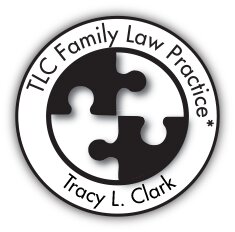Best Child Visitation Lawyers in Prince George
Share your needs with us, get contacted by law firms.
Free. Takes 2 min.
Free Guide to Hiring a Family Lawyer
List of the best lawyers in Prince George, Canada
About Child Visitation Law in Prince George, Canada
Child visitation law in Prince George, Canada, is designed to ensure that children have regular and significant contact with both parents after separation or divorce, provided that it is in the best interest of the child. Visitation rights, commonly referred to as "parenting time" or "access," allow the non-custodial parent scheduled time with their child. The main focus of these laws is the well-being of the child, which includes their emotional, physical, and psychological health.
Why You May Need a Lawyer
There are several situations where individuals might seek legal assistance regarding child visitation in Prince George:
- Establishing Visitation Rights: Parents who have separated or divorced may need legal help to establish a parenting plan that outlines visitation rights.
- Modifying Visitation Arrangements: Changes in circumstances, such as relocation or changes in work schedules, may require modifications to existing visitation agreements.
- Enforcing Visitation Orders: If one parent is not complying with the court-ordered visitation schedule, legal intervention may be necessary.
- Resolving Disputes: Navigating disputes between ex-partners regarding access and visitation schedules may require legal mediation or court intervention.
- Concerns About Child Safety: If a child’s safety is in question during visitation with the other parent, it may be necessary to seek legal advice for protective measures.
Local Laws Overview
Child visitation laws in Prince George are governed by both federal and provincial legislation. The key components of child visitation law in the region include:
- Best Interests of the Child: Legal decisions are always made with the child’s best interests in mind, considering their health, emotional well-being, and relationships with both parents.
- Parenting Plans: Parents are encouraged to develop a detailed parenting plan, which outlines visitation schedules and responsibilities.
- Family Law Act (British Columbia): This act covers the guidelines and regulations for issues related to custody, guardianship, and visitation in the province.
- Enforcement of Visitation Orders: Legal avenues exist to enforce visitation orders if one parent does not comply.
- Dispute Resolutions: Mediation and collaborative family law processes are encouraged to resolve disagreements without court intervention.
Frequently Asked Questions
What factors does the court consider in determining visitation?
The court primarily considers the best interests of the child, including their age, health, emotional ties with each parent, and the stability of each home environment.
Can grandparents request visitation rights?
Yes, grandparents can seek visitation rights through the courts, but they must demonstrate that visitation is in the best interests of the child.
Is it possible to change an existing visitation agreement?
Yes, modifications to visitation agreements can be made if there is a significant change in circumstances affecting the child's welfare.
What can I do if the other parent is not following the visitation agreement?
If the other parent is not complying with the visitation order, you can seek legal enforcement through the court system.
Are visitation rights automatically granted to non-custodial parents?
Visitation rights are not automatic; they are determined based on what is best for the child. However, the courts generally encourage regular contact with both parents.
Do I need a lawyer to establish or change visitation rights?
While it is possible to represent yourself, having a lawyer can help navigate the complexities of family law and ensure the best outcome for your child.
Can visitation be denied by the custodial parent?
Visitation can only be denied for legitimate reasons, such as potential harm to the child, and typically requires a court order.
What is supervised visitation?
Supervised visitation is when a parent can only visit the child in the presence of another adult, often due to safety concerns for the child.
How can mediation help with visitation disputes?
Mediation can assist parents in reaching a mutually agreeable visitation schedule without the need for court intervention, which is often less adversarial and more cost-effective.
What if I am concerned about the child's safety during visitation?
If you have concerns about your child's safety, legal advice should be sought immediately to explore options like supervised visitation or adjusting the visitation schedule.
Additional Resources
Several resources can provide support and guidance for child visitation issues in Prince George:
- Legal Aid BC: Offers assistance to those who cannot afford a lawyer, including family law services.
- Family Justice Centres: Provide information, mediation services, and help with family law matters.
- Parenting After Separation Program: A free program that provides parents with information about the separation's impact on children and how to communicate effectively.
- British Columbia Ministry of Attorney General: Offers resources and publications related to family law.
Next Steps
If you require legal assistance with child visitation in Prince George, consider the following steps:
- Consult a Family Lawyer: Seek out a family lawyer with experience in child visitation cases to guide you through the legal process.
- Gather Documentation: Collect all relevant documents, such as existing court orders, communication records, and any evidence relating to your visitation concerns.
- Explore Mediation: Consider mediation as a first step to resolve disputes amicably.
- Prepare for Court: If court intervention is necessary, ensure you are prepared by understanding the legal process and your rights.
- Stay Informed: Keep yourself updated with any changes in local family law that may affect your case.
Lawzana helps you find the best lawyers and law firms in Prince George through a curated and pre-screened list of qualified legal professionals. Our platform offers rankings and detailed profiles of attorneys and law firms, allowing you to compare based on practice areas, including Child Visitation, experience, and client feedback.
Each profile includes a description of the firm's areas of practice, client reviews, team members and partners, year of establishment, spoken languages, office locations, contact information, social media presence, and any published articles or resources. Most firms on our platform speak English and are experienced in both local and international legal matters.
Get a quote from top-rated law firms in Prince George, Canada — quickly, securely, and without unnecessary hassle.
Disclaimer:
The information provided on this page is for general informational purposes only and does not constitute legal advice. While we strive to ensure the accuracy and relevance of the content, legal information may change over time, and interpretations of the law can vary. You should always consult with a qualified legal professional for advice specific to your situation.
We disclaim all liability for actions taken or not taken based on the content of this page. If you believe any information is incorrect or outdated, please contact us, and we will review and update it where appropriate.









